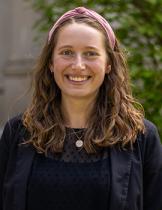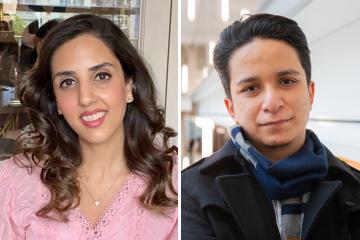
Choosing a PhD program: Advice from recent PhDs

Estimated read time: 10 minutes
This post is part of a series offering advice for prospective PhD students. “Is a PhD right for me?” lays out a series of questions and tips to help potential candidates decide whether to pursue a PhD in the first place. “Applying to PhD programs: Advice from J-PAL affiliates” covers advice on how to write a great PhD application once the decision to apply has been made.
Doing a PhD is a big investment. It takes several years—most US programs are designed to take five years but often take longer—and a PhD is hard work and comes with significant opportunity costs in terms of advancing your career in other ways. Therefore, deciding which program to attend is an important decision. In this blog, we compiled advice from J-PAL postdocs and staff with PhDs to help prospective students choose between programs to which they have been accepted, or to help them consider next steps in case they were not accepted to any of their preferred programs.
Choose the program that will give you the best training and support for your future career
“The focus of a PhD should be training for your future career. You should choose a program that will provide you with the skills and support you need for your particular career goals. Beyond looking at the job placements of recent cohorts to gauge the quality of a program, consider reaching out to past graduates with different types of jobs to ask what support they received during their PhDs and on the job market—especially if you think you may eventually be interested in government jobs, private sector jobs, jobs at liberal arts colleges, etc. Even if you don’t currently think you’re interested in those jobs, knowing whether the department will support you if you change your mind is a good metric of department culture.”
- Megan Lang, Economist at the World Bank Development Research Group, former J-PAL K-CAI Postdoc, PhD in Agricultural and Resource Economics from UC Berkeley
Research the culture of the program
"Beyond the ranking of the department, the culture of the department can have a large impact on your experience during your PhD, including the support you will receive and your mental health. It can, therefore, be valuable to reach out to current students to learn about the climate in their program. For example, does anyone complain of a toxic environment? Do professors treat grad students like junior colleagues? How quickly do professors respond to emails from grad students? How detailed and helpful is their feedback? How often do professors coauthor with grad students and how often do grad students coauthor with one another? Do students work on problem sets together? Do they give each other feedback on papers and job market materials outside of seminars?”
- Eitan Paul, Senior Research Manager at J-PAL Global, PhD in Public Policy and Political Science from the University of Michigan
Consider the financial package
"While getting a PhD is a long-term investment, it also has a high opportunity cost in that you commit to a number of years of relatively low pay compared to what you could be making elsewhere. Therefore, you should think very hard about the long-term financial implications before starting a program that is not fully funded (including funding you can get from external sources like the National Science Foundation). You should also consider the financial implications of doing a PhD beyond the tuition and living expenses, e.g., if you are planning on doing costly research, such as fieldwork or expensive data collection, ask about the availability of research grant funding within the university, and ask about the rules for doing external consulting work to supplement your stipend. While you should not let $1,000 shift your decision, you can and should negotiate your financial package, including help with moving expenses, guaranteed RA or TA jobs, research grants, etc. Not every school is able or willing to negotiate, but it helps to try to level the playing field; then pick the school that will provide the best training, assuming it meets basic financial needs."
- Jesse Gubb, Senior Research Manager at J-PAL North America, PhD in Political Science from Harvard University
Consider the benefits beyond the financial package
"Being a PhD student can be very different from being a master’s student or doing a professional degree program like an MBA. A PhD is much more like a job and you should treat it as such. When choosing which school to go to, you should, therefore, take into account the workplace aspects of the program. For example, consider the health insurance package: does it cover what you expect to need? If you have a family or are planning to start one during your PhD, what are the options for childcare and other resources for parents? When evaluating information on the benefits beyond the financial package, it can be a good idea to ask both for the formal information from the graduate school and the experience of the students themselves."
- Ying Gao, Senior Policy Manager at J-PAL Global, PhD in Political Science from MIT
Consider the teaching requirements
“For most schools, PhD stipends are conditional on teaching. Different schools (and different departments within schools) have different rules and expectations about how much PhD students have to teach, ranging from each semester to only a few semesters over the course of the PhD. While teaching can be fun and a great way to learn, it is also a large time commitment which, unfortunately, rarely factor into your ranking within the school. It is therefore important to understand the teaching requirements of the different schools/departments before making a decision. Ask both about the formal rules and students’ experiences of the enforcement of these rules. For example, sometimes students can apply for internal or external funding that can decrease the teaching load, or professors can hire the students as research assistants to “buy them out” of teaching.”
- Michala Riis-Vestergaard, Senior Research, Education, and Training Manager at J-PAL Global, former J-PAL Global Postdoc, PhD in Psychology and Social Policy from Princeton University
Consider whether the conditions of the location beyond the PhD program itself will help you thrive
"A PhD typically takes somewhere between three and eight years to complete, so it is important that the program is located somewhere you could imagine living for that length of time. For example, if having a support system is necessary for you—like if you are moving with young children or a spouse—let that factor into your decision of where to go. If you are an international student moving with a spouse, consider whether it is possible for your spouse to work to make sure your family has a sustainable income. On the margin, you could also consider other factors, such as traffic, nature, city amenities, etc. The visiting days can be a great opportunity to get a sense of whether you can live somewhere and whether the location is a good fit."
- Nurina Merdikawati, J-PAL Southeast Asia Postdoc, PhD in Economics from Crawford School of Public Policy, Australia National University
Start thinking about your advisor and committee but don’t get too invested in one specific advisor
"Some programs will have you apply directly to an advisor or choose an advisor before starting the program; some programs won’t have you commit to an advisor until you are several years into the program. Regardless of the structure, it is important to choose a program and an institution that has multiple professors with whom you would be excited to work, as there is always the risk that a professor will relocate—especially if they are junior faculty. Some benefits of choosing a junior advisor are that junior faculty tend to be more hands-on, and their PhD is a recent memory, while senior faculty typically have more experience advising students and have wider networks. Large universities often have economics faculty across multiple departments (e.g., an economics department, an applied or agricultural econ department, a business school, a policy school). When considering your possible advisor and other committee members, make sure that you know of all of the economists on campus, as you can benefit from faculty from other departments."
- Sarah Kopper, Interim Director of Research at J-PAL Africa and Associate Director of Research at J-PAL Global at MIT, PhD in Agricultural Economics from Michigan State University
Don’t get discouraged if you don’t get into your top program in the first year
“There is a lot of randomness in the admissions process as many applicants will look very similar on paper in terms of skills and qualifications. There are a few ‘superstars’ every year that will basically get in everywhere (think Econometrica publication as an undergrad, a few working papers, and a reference from a well-known senior professor saying this person is the best they ever taught) but the next 10-15 percent of applicants will all have top GRE scores, grades, letters, etc., so a lot of it comes down to the subjective assessments and preferences of people on the admissions committee in a given year and idiosyncratic factors like how tough the competition for a given field in a given department is (i.e. departments will aim for a balance of different fields)."
- Anna Schrimpf, Global Director of Innovation at J-PAL, former J-PAL Global postdoc, PhD in Political Science from Princeton University
Don't compare yourself, never ever go on GradCafe, and don't read other people’s CVs
“It is incredibly tempting to compare yourself to other aspiring PhD students in the application process. However, nothing good can come from such comparisons. Even if you don’t get into your preferred programs, choose to reapply next year, and want to learn how to improve your application, looking at current PhD students is not super helpful (see survivorship bias airplane meme here). It is more valuable to look at advice available online from professors who have sat on admission committees rather than inferring successes and failures through comparisons.” (Note: A lot of valuable resources are listed in our previous blog post, “Is a PhD right for me?”)
- Andreas de Barros, assistant professor at the University of California, Irvine, former J-PAL Global postdoc, PhD in Education from Harvard University
There are PhD options for mid-career professionals, too
"If your career goal is to work in academia, there are, undoubtedly, clear and large benefits to doing a PhD early in your career. But if you are open to pursuing policy and industry jobs in addition to academic roles, whether to do a PhD is not a “now or never” decision. Plenty of people pursue PhDs after having worked for 10-15 years or more. Talk to people who have started a PhD later in their career to think through whether it may be the right path for you. Also, look into PhD programs, often in public policy schools, that offer more flexibility and support for mid-career professionals including part-time study options."
- Claire Walsh, Associate Director of Policy, J-PAL Global; DPhil Candidate, Public Policy, Blavatnik School of Government, Oxford University
In summary, if you are accepted to several programs, you should choose the PhD program that is best for you: which program and department will best help you reach your career goals, support you throughout the PhD process and on the job market, and align with your personal needs and preferences?
If you don’t get into any of your preferred programs, you have several options. If a PhD is required to achieve your career goals, consider spending a year improving your CV, GRE score, and research statement/statement of purpose and reapplying next year. If a PhD is preferred but not required to achieve your career goals, consider taking a job that can advance your career toward your goals while maintaining the option to seek a PhD later in your career. In the meantime, explore advice, application assistance, and mentorship programs referenced in our previous blog posts ("Is a PhD right for me?" and "Applying to PhD programs: Advice from J-PAL affiliates").


